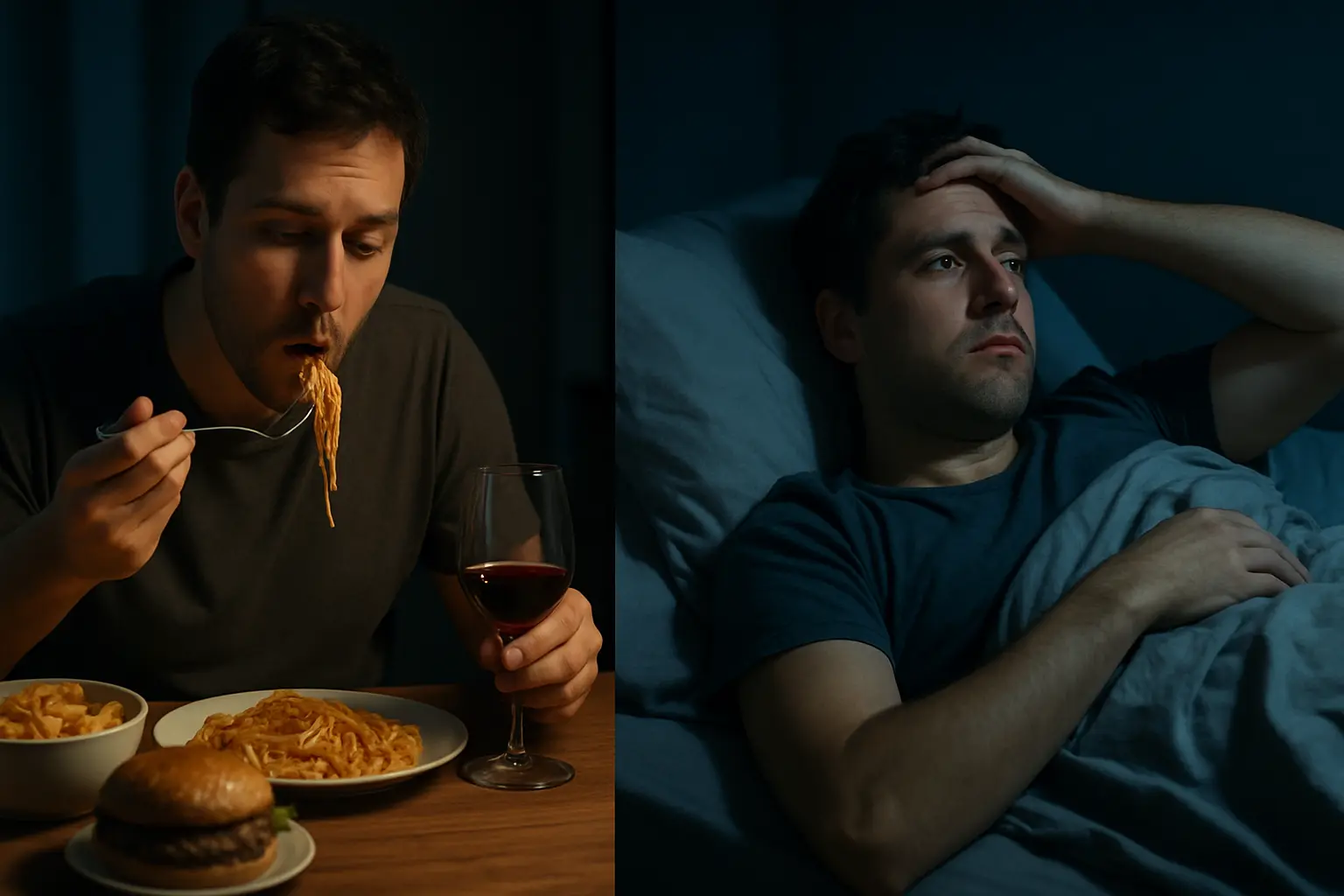How Alcohol and Late-Night Eating Affect Sleep Quality and Snoring
Many people enjoy a glass of wine or a late snack, but these habits can silently disrupt sleep and exacerbate snoring.
Understanding the physiological impact of alcohol and late-night meals on your airway and sleep cycles is key to improving restorative sleep.
Alcohol's Impact on Sleep
- Muscle relaxation: Alcohol relaxes throat muscles, increasing airway collapse and snoring.
- Sleep fragmentation: Short-term sleep may be deeper initially, but alcohol causes reduced REM cycles later in the night.
- Dehydration: Leads to dry mouth, throat irritation, and louder snoring.
A 2023 SnailSleep study of 8,500 users found moderate alcohol consumption increased snoring intensity by 22% on average.
Late-Night Eating and Snoring
- Eating close to bedtime can increase acid reflux, which may irritate the airway and worsen snoring.
- Heavy meals trigger digestive activity, disrupting the body's natural sleep rhythm.
- Certain foods high in fat or sugar can promote airway inflammation.
SnailSleep AI monitoring revealed that nights with heavy late meals correlated with 15–30% higher snoring episodes.
Data Snapshot: Alcohol & Late-Night Eating vs. Snoring
| Habit | Avg. Snore Score (0-100) | REM Sleep % | Oxygen Saturation (%) |
|---|---|---|---|
| No alcohol, early meal | 48 | 22% | 95 |
| Alcohol only | 61 | 18% | 93 |
| Late-night eating only | 57 | 19% | 94 |
| Alcohol + late meal | 72 | 15% | 91 |
The combination of alcohol and late-night eating can amplify airway collapse and oxygen dips, significantly increasing snoring severity.
Physiological Mechanisms
- Relaxed airway muscles → increased soft palate vibration
- Reflux and irritation → throat swelling, airway narrowing
- Reduced REM & deep sleep → impaired restorative function and next-day fatigue
Strategies to Reduce Snoring
- Limit alcohol 3–4 hours before bed
- Avoid heavy late meals; opt for light, low-fat snacks if necessary
- Hydrate adequately, but avoid excessive liquids immediately before sleep
- Elevate head slightly to reduce reflux and airway obstruction
- Monitor snoring and sleep quality using SnailSleep to track improvement
Real-Life Example: Daniel's Sleep Adjustment
Daniel, 41, noticed his snoring worsened after nightly wine and late dinners.
By adjusting his bedtime habits and tracking progress with SnailSleep, he reduced snoring intensity from 78 to 50 over four weeks, while also experiencing better morning energy and mood.
Related Articles
- Late Bedtimes in Children: Impacts on Sleep and Snoring
- When Snoring Gets Dangerous: Early Warning Signs of Sleep Apnea
- The Role of Weight and Obesity in Snoring and Sleep Apnea

